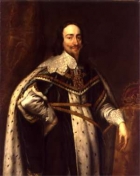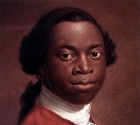Digital history
Although there are no longer any formal requirements within the Teacher Standards relating to the effective use of IT in teaching, nor any specific statements relating to students’ use of digital resources within the National Curriculum in England, technology has vastly enriched the teaching and learning of history in recent years. The resources here focus specifically on the ways in which learning history can be enhanced through the use of technology; whether this relates to the access and analysis of sources, to the processes of constructing different kinds of historical accounts (dramas, debates and documentaries as well as different kinds of written explanation and argument), or to the means by which young people can share their investigative tasks and the outcomes of what they have learned, giving them a ‘real’ audience for their work.
-

Using oral history to enhance a local history partnership
ArticleClick to view -

Harnessing the power of community to expand students’ historical horizons
ArticleClick to view -

Using Google Docs to develop Year 9 pupils’ essay-writing skills
ArticleClick to view -

Triumphs Show 160: Prezi and propaganda
ArticleClick to view -

Using databases to explore the real depth in the data
ArticleClick to view -

Using Twitter in the History Classroom
ArticleClick to view -

Teaching the iGeneration
ArticleClick to view -

Developing pupil explanation through web debates
ArticleClick to view -

Triumphs Show 148.1: collaborating to commemorate Olaudah Equiano
ArticleClick to view -

Stories and their sources: the need for historical thinking in an information age
ArticleClick to view -

What do you think? Using online forums to improve students' historical knowledge and understanding
ArticleClick to view -

Making pupils want to explain: using Movie Maker to foster thoroughness and self-monitoring
ArticleClick to view -

11 Ways to Use Multimedia Videos in History Lessons
ArticleClick to view -

British History Online - Digital Resources
ArticleClick to view -

Miss, now I can see why that was so important: using ICT to enrich overview at GCSE
ArticleClick to view -

When computers don't give you a headache: the most able lead a debate on medicine through time
ArticleClick to view -

Keeping the kids on message...one school's attempt at helping sixth form students to engage in historical debating using ICT
ArticleClick to view -

Conceptual awareness through categorising: using ICT to get Year 13 reading
ArticleClick to view -

'You be Britain and I'll be Germany...' Inter-school e-mailing in Year 9
ArticleClick to view -

Computers don't bite! Your first tentative steps in using ICT in the classroom.
ArticleClick to view

